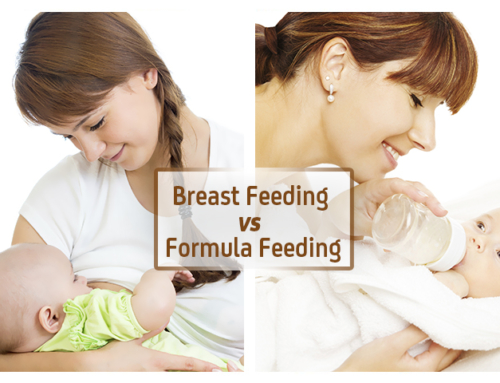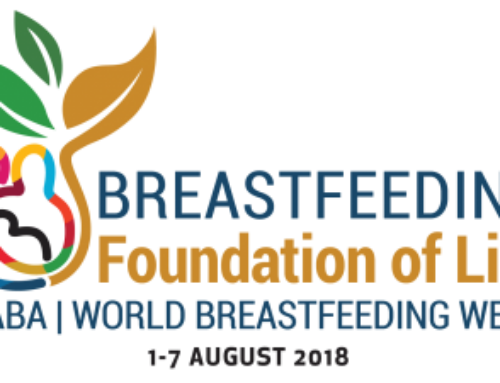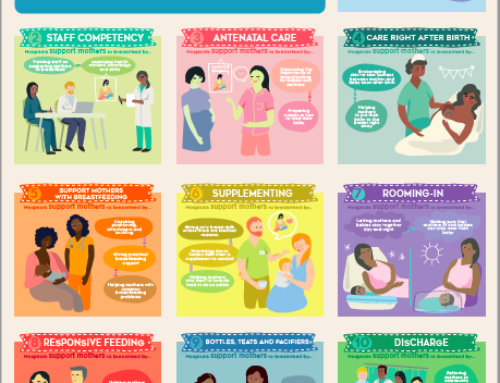 Breastfeeding and alcohol…it’s the season for a holiday beverage or two. What’s a nursing mama to do? Many breastfeeding moms wonder if it is safe for them to have an occasional alcoholic beverage. Controversy and misinformation surrounds this topic. The conventional wisdom is to pump and dump. Or buy the alcohol “test strips.” Or even, “If you are safe enough to drive, you are safe enough to nurse.” But what happens if mama has a few drinks and feels tipsy, maybe not safe to drive…then baby wakes up to nurse? Is that safe? Is it worth the “risk?”
Breastfeeding and alcohol…it’s the season for a holiday beverage or two. What’s a nursing mama to do? Many breastfeeding moms wonder if it is safe for them to have an occasional alcoholic beverage. Controversy and misinformation surrounds this topic. The conventional wisdom is to pump and dump. Or buy the alcohol “test strips.” Or even, “If you are safe enough to drive, you are safe enough to nurse.” But what happens if mama has a few drinks and feels tipsy, maybe not safe to drive…then baby wakes up to nurse? Is that safe? Is it worth the “risk?”
The breastfeeding and alcohol question is just another way that the mother-baby dyad is consistently and insidiously undermined, or “booby-trapped.” It is so hard to know where to look for information, especially for evidence-based advice. Part of the blame lies with our consumer based economy, which needs to have a product for every situation. Our consumer based economy is constantly frustrated by breastfeeding mamas. Oh dear, they make their own perfect baby food, quick, how can we get them to buy something they don’t need?!? Whether the advice is to pump and dump (which doesn’t work and what a waste of precious milk!) or to buy the test strips (someone needs to make money off breastfeeding mamas some way) the end result is that women who consider having an alcoholic beverage while nursing are faced with guilt or shame. Each breastfeeding mother who is considering having a glass of wine is just like every other mother; she simply wants what is best for her baby! So, with all of the misinformation floating around many mothers either abstain altogether out of fear, or gently imbibe with great foreboding. But neither guilt nor abstinence is necessary if you examine the physiology and pharmacology of breastmilk and alcohol metabolism.
When we look at the way alcohol is processed by the body, it helps to first look at how it is transferred into the breastmilk. Some drugs and medications stay in the breastmilk until the milk that contains them is expressed or consumed. These substances are where the “pump and dump” advice comes into play. Alcohol doesn’t work like this. Alcohol in the blood maintains approximately a 1:1 ratio with the alcohol contained in the breastmilk. This means that if your blood alcohol content (BAC) is 0.08 (over the legal limit in California) then your breastmilk alcohol content is approximately 0.08%. Only eight one-hundredths of a percent of the breastmilk would contain alcohol. This 1:1 ratio also means that as you get more sober, your milk gets more “sober.” The liver is continuously processing the alcohol as it filters your blood, and the consistently dropping blood-alcohol level is mirrored by a consistently dropping breastmilk alcohol level. Many mothers will have a glass of wine or two with dinner, and then be so concerned about the alcohol content of her milk that she will pump and dump with the mistaken belief that it is necessary to rid the breastmilk of the alcohol content. But the liver is already metabolizing the ethanol and reducing the ethanol content of the breastmilk in a 1:1 fashion. So there is absolutely no need to pump and dump your milk after drinking, or the next morning. Not even if mama were to go out and get trashed. (Which I am not recommending).
More confusion comes into play when people confuse the all the numbers involved. The proof of the alcoholic beverage involved does not directly equal the blood alcohol content of the mama drinking it. There are more complicated things to consider including weight, number of drinks consumed, and rate of consumption.
Compare the alcohol content of the breastmilk of a legally intoxicated mama (0.08 BAC) to the alcohol content of orange juice is approximately 0.09% ethanol-by-volume (aka ABV). The legally intoxicated mama will have breastmilk which has an ABV concentration that closely mirrors her BAC, approximately 0.08. That means that mama’s breastmilk when legally intoxicated is less alcoholic than orange juice! And for mamas who only consume one alcohol beverage, their BAC (and thus the ABV of their breastmilk) is considerably lower than that found in even the most innocuous of fresh juices. I can’t tell you how many times I have heard mamas say “Well, I will just pump and dump to be sure…” And the abundance of caution is certainly understandable. But really, if the mother would feel comfortable with a child imbibing the alcohol concentration found in fresh juice, why even blink at the alcohol concentration in milk after a glass of wine. It’s not logical.
So what’s the bottom line here? It is safe to have a drink and breastfeed. Moderation in everything is key, and this should in no way be construed as encouraging mothers to become intoxicated. But the reality of the science is that even when legally intoxicated, the mother would only pose a threat to the infant through loss of motor function (dropping baby, rolling over on it, etc) and not through the alcohol content of her breastmilk. Indeed, the motor impairment of an intoxicated mother is my major concern when mothers choose to drink, rather than the risk of exposing the child to miniscule, infinitesimal concentrations of alcohol.
If you would like to see what your BAC would be after that one glass of wine, for example, please check out this link. I plugged a few of my personal numbers into the handy-dandy calculator for a real-life example (like the one right here: http://oade.nd.edu/educate-yourself-alcohol/blood-alcohol-concentration/bac-calculator/).
Some article references for those interested:
http://www.ncbi.nlm.nih.gov/pubmed/8312842?dopt=Abstracthttp://www.ncbi.nlm.nih.gov/pubmed/1523347
http://onlinelibrary.wiley.com/doi/10.1111/j.1471-0528.1974.tb00369.x/abstract
https://web.archive.org/web/20180921100211/http://www.tectronik.it:80/perch/resources/aranceen.pdf
http://www.while-science-sleeps.com/pdf/29.pdf
https://web.archive.org/web/20140708083602/http://www.pharmcoaaper.com/pages/TechLibrary/tech_docs_ethyl_alcohol/conversion_table_wt_vol_percent_ethyl_alcohol_water_mix.pdf
About the Author: In real life, the author is a Registered Nurse with a specialization in Clinical Nurse Leadership and also has a post-licensure certification in Oncology.






[…] wrote an article on alcohol consumption for Evolutionary Parenting, which stated: “The alcohol content of the breastmilk of a legally intoxicated mama (0.08 BAC) to the alcohol content of orange juice is approximately 0.09% ethanol-by-volume (aka ABV). The legally intoxicated mama will have breastmilk which has an ABV concentration that closely mirrors her BAC, approximately 0.08. That means that mama’s breastmilk when legally intoxicated is less alcoholic than orange juice! And for mamas who only consume one alcohol beverage, their BAC (and thus the ABV of their breastmilk) is considerably lower than that found in even the most innocuous of fresh juices.” […]
And you’d have to be quite smashed, almost twice the legal limit, to equal the alcoholic content of that childhood favorite, apple juice, which clocks in at a *gasp* .14% alcohol.
Great piece. 🙂
I’ve never heard of juice having an alcohol content, can someone explain why juice would have alcohol in it? Thx. Great article.
Yep thanks to the fermentation of the sugar during the juicing process 🙂 Pretty much all juices have a small amount!
I am from a family that makes alcohol for a living. I work in my families tasting room and have brought my LO along since she was born. My LO is 23 months old and a BF toddler. Alcohol consumption has always been a topic for me and my family. I am a strong believer in mothers intuition and knowing your body and your baby. My LO was strong, hearty, chunky and thriving without a doubt, my concern with consuming alcohol (wine) was very low on my priority list. I have consumed small to large amounts of alcohol and have never seen an effect on my child. The only effect noticed was on my milk production, if you are dehydrated you will not make milk. Of course safety is an issue but never did I ever feel that I was not attentive or in tune with my child. I grew up in the wine industry and alcohol is a part of our daily lives, I have a health respect for alcohol and also an understanding of how it negatively effects others with addiction. The bottom line is trust your gut and use moderation. Alcohol like many other things can be and should be used medicinally for relaxation, enjoyment and health. As for me I think it benefits my relationships as a mother and wife. Thank you for writing this article and making having a glass or two of wine a little less taboo.
[…] enfim, segue a tradução tosca do artigo – o original está aqui. Leiam e tirem suas próprias […]
Nicely done! Thanks for putting real science into the conversation!
I have never commented on article, but today I am making an exception. Thank you! Thank you! Thank you! Before I was pregnant, my family called me the wine princess, since I loved having a very nice (read expensive) glass of wine at dinner. After having my daughter, I have been frought with worry and guilt as I asked for a “splash” of wine, and I wouldn’t even finish it because I knew my high needs girl would need to nurse soon (she’s 4 months and going though teething and a miracle week). I tried those test strips and it seems if I have ANY trace of alcohol, they detect it and make you feel like a shitty mom for nursing your obviously hungry/upset baby. Thank you so much for setting my mind at ease! Y gut told me this was the truth, but I needed to hear it from someone else
Where’s your source for these assertions? Without a source, this is just more advice not based on evidence, which is worthless, as you’ve pointed out.
Anna, the author is currently putting this together for publication in a peer-reviewed journal which I will share a link to once it’s complete. However, the numbers for the breastmilk alcohol content are widely available and known. Here is an article that may interest you on the topic:
http://www.eatsonfeets.com/docs/Alcohol_and_Breastfeeding.pdf
Interesting article, thanks. I tried to go to the source website, and it’s unfortunately not available without a subscription. That’s a shame, because it looks like the “galactopharmacopedia” has a lot of interesting research. It’s too bad that information isn’t more freely available to the people who could use it to make real-world decisions. As pointed out here, it is very difficult to find evidence-based information on breastfeeding.
The article uses the same information to come to the complete opposite conclusion, which is also interesting. Of note is a study mentioned that found a decrease in motor skills of infants in a test group, even when the mother was not a heavy drinker.
I don’t have a dog in the fight, as I’m not a breastfeeding mother at this time, nor do I generally care what other mothers choose to do. I do have an opinion on the topic, but you know what they say about opinions. 🙂 Interestingly, my opinion was not changed even though I have learned something I didn’t know before. That just tells me that my “gut” on this one was right.
I think it illustrates a great point though, that when you make a decision like this, you shouldn’t take some one else’s conclusions at face value. Go to the source and read up on the facts, and make your own conclusion. Some may end up agreeing with the conclusion of this guest post, others may end up agreeing with the conclusion of the article.
Statistics and study results can easily be manipulated to suit the agenda of whomever is citing them. It’s unfortunate that so many of us have been conditioned not to question medical advice in the US and we completely turn off our own reasoning when someone in a white coat tells us how things should be.
I love that it’s popular right now to encourage breastfeeding and other “natural” parenting styles, and be more cautious about certain medical decisions that are publicly promoted by one agency or another (which shall not be named at risk of derailing the topic). Even if it’s still on the fringes, hopefully the spirit of making your own decisions based on what’s best for our individual families, and not on what we’re told, will catch on and be more widespread in the current and next generation of parents.
I am interested in whether there’s been any more recent research on the topic. This was published in 1995 and I’m sure we have better technology for researching such things now, almost 20 years later.
They’ve actually tried to replicate that one study on motor movement and no one has been able to (see http://pediatrics.aappublications.org/content/109/5/e72.long). There is the one issue here of how much during the first 3 months as the baby’s liver isn’t fully developed yet so it processes alcohol in lower rates than adults do, even considering their size. At 3 months it has developed but one must still take into account the infant’s weight.
However, almost all things I’ve read from breastfeeding sources say not to worry at all about moderate amounts of alcohol, just don’t overdo it. More mainstream sources will try and tell you otherwise. However, I didn’t find the article cited coming to the opposite conclusion, just rather using the more “cover-your-ass” advice that public opinion pieces will share which is just to wait 2 hours per drink. That’s a common one and most people I’ve heard throw it out then privately tell you not to worry about it 😉 However, the article didn’t say not to drink at all.
One other thing about the Anderson article – if you check the references, many are from the late 80s early 90s when we had a panic over alcohol use around infants at all and much of which has been altered in more recent research – like the 2002 inability to replicate I just shared above.
But you’re absolutely right to read the actual research (when possible, which is why I try to share it here) and come to your own conclusions. What you have spelled out for me is that I absolutely should do my own review of the research here on this topic 🙂
I really enjoyed this article – thanks!!!! Can anyone shed light on whether the same rationale applies to caffeine? If not, why would it be different?
Here is some info on caffeine and babies 🙂 Seems it may actually be harder for babes to metabolize caffeine (but then again, it’s also slower for us to metabolize too).
http://kellymom.com/bf/can-i-breastfeed/lifestyle/caffeine/
Add me to mailing list. Thanks!
Excuse me?
I don’t think if you as long as you keep it to one or two drinks it would be ok but just don’t go over board. That is just being a responsible parent. I enjoy a glass of wine every now and then but I could hold of until I was done breastfeeding.
Thank goodness, used to have a glass of wine in the evening when breast feeding my daughter for eighteen months. Still have the glass of wine when preparing dinner. Have done for the last eighteen years.
So, I have a few questions. Not sure if I just didn’t understand from the article (it’s late!) or wasn’t mentioned.
My understanding from my breastfeeding training tells me that breastmilk is converted from blood. Does this blood go through the liver first to be filtered (before milk is produced)?
If not, milk is STORED in the breast, then can’t the milk that had alcohol from when you were first drinking be stored in the breast and the milk would still have alcohol? Obviously the milk that was produced after liver filter would be fine. The blood flows in a circular system in our body, which explains the alcohol dropping levels in the blood. However, breastmilk does NOT flow through the body repeatedly to be filtered. There would only be *one* filtering, and possibly none *if* the milk is produced from the blood before it has a chance to reach the liver. I’m not saying that IS what happens, I’m just curious, and I didn’t see the article address that. It just assumed that since blood alcohol content continuously drops, so does the content in the milk.
Or does the alcohol kind of evaporate from the milk?
I believe your understanding is off. From KellyMom (and an ICBC): “Alcohol does not accumulate in breastmilk, but leaves the milk as it leaves the blood; so when your blood alcohol levels are back down, so are your milk alcohol levels.”
Thanks Tracy but that still doesn’t answer my question (or I don’t understand).
From the article posted here on this page, it says blood alcohol is filtered through the liver.
If alcohol “leaves the milk as it leaves the blood” as stated from the Kellymom quote, then the question is what is that “same way” in which it leaves?
Either one of two things is happening: either the body produces breastmilk AFTER the blood is filtered through the liver, and then there is no concern OR
If the body produces milk from the blood BEFORE it has a chance to filter, then that means there could be a high content of alcohol in a portion of the breastmilk that was made and went to the breast before it had a chance to be filtered.
Another possibility is the alcohol is filtered out some other way.
I hope my question makes sense. Again, the key is *how* the alcohol leaves the body. Of course it wouldn’t *accumulate* because the alcohol levels would continuously go down as the alcohol levels in the blood goes down and new milk is made from it. But couldn’t it remain in the milk that is *first* produced before levels go down as how I explained above?
Now I see your question – sorry I was confused before. I don’t know the answer of exactly how it metabolizes, but there is clearly a third option because measuring alcohol in breastmilk has shown us that it is metabolized at the same rate as it is in the bloodstream. It may be an issue of when the milk is made, but I couldn’t tell you!!
Thank you. If that’s true then I see why it’s not a concern. 🙂
Alcohol moves /diffuses from an area of greater concentration to an area of lesser concentration. Like osmosis? As alcohol leaves blood via liver, then the alcohol will leave the milk into the blood.
[…] *Yep, a cocktail now and then is fine while breastfeeding. […]
This is currently a work-in-progress to bring it up to snuff as an actual scholarly article, but for those interested, here are a few links to a few of my scholarly references (note, these are not APA formatted, but merely links).
http://www.ncbi.nlm.nih.gov/pubmed/8312842?dopt=Abstract
http://www.ncbi.nlm.nih.gov/pubmed/1523347
http://onlinelibrary.wiley.com/doi/10.1111/j.1471-0528.1974.tb00369.x/abstract
http://fshs8813.wpengine.com/proceedings-o/1971-vol-84/217-222%20(DAVIS).pdf
http://www.tectronik.it/perch/resources/aranceen.pdf
http://www.while-science-sleeps.com/pdf/29.pdf
http://www.pharmcoaaper.com/pages/TechLibrary/tech_docs_ethyl_alcohol/conversion_table_wt_vol_percent_ethyl_alcohol_water_mix.pdf
Fantastic topic & discussion, really got me thinking. I am on-board with the idea that we over-state the effects of a glass of wine to a lactating mother’s milk. But now I’m curious. If we apply the BAC caluculator to an infant, of only 10-20lbs, what does consumption of 4oz of a milk at 0.08% ABV imply for the baby’s blood alcohol? I ran the numbers & for a 15lb baby drinking 4oz in 1/2 an hour their theoretical BAC came out to 0.0164. What does this mean for a still developing infant? I’m certainly not qualified to make any assumptions. Just food for thought. There’s so much development in those first few months, is it a hugely moving target? The juice comparison is a great one, but most infants aren’t drinking juice in those early months anyway.
Again, I don’t mean this to be negative, more as curiosity of what’s been considered. My scientific curiousity sometimes leads to overly nit-picking on subjects that are already over-simplified. I’m appreciate for this article, that it gives some MEANINGFUL + LOGICAL explanation to help Moms make their decisions.
*Apologies – Need to fix my numbers. The estimated baby BAC was done using a 4oz beverage at 1% alcohol by volume over 1/2 hour (when tried at 0.08% the estimation gave a negative output).
[…] Approximate ABV of average serving of orange juice is 0.09%. source […]
Well written article but I would like to see more evidence based research on the long term effects on children whose mothers drink during breast-feeding. How can you tell if your baby is “all right” when you don’t know what’s happening to brain cells? Research needs to be done on older kids/ adults to see if there are any long term differences such as increased neuromuscular diseases, cancers, organ impairments, even IQ! Here’s a thought- obviously not going to be popular, but just don’t drink while you’re breast-feeding! It’s only six-months to one-year (per child of course) out of your life without drinking alcohol.
Well, the issue is more complex. We know NOT drinking is associated with worse outcomes for people so there’s that to contend with. There’s also the fact that many people don’t breastfeed because they want to enjoy a glass of wine and so what is the detriment from that point of view? Then of course there’s the idea that it’s “only six-months to one-year” per child. My daughter will be 4 in June and is still nursing…
Breastfeeding & medications is quite a complex area with research underway to further our understanding. There are a few factors to take into consideration.
1. Whether the drug likes to stay in water or fat.
2. The breast has lots of blood vessels, so whatever is in the blood stream will circulate through the breast milk and change with the blood.
Alcohol stays in water so it stays in the blood and circulates in and out of breastmilk, the concentration changing as the body metabolises the alcohol.
Some medications are fat loving and they will settle in the fat of the breastmilk and be retained until the milk is removed. The effect on the infant is determined by the drug & concentration and is very individual so people should check with their pharmacist if concerned.
Pumping and dumping will work with those medications and if you are lucky enough to have a babysitter for the night and need to express to maintain supply/minimise pain.
The overall issue is tricky as to get ethics approval to do a good quality study would be a nightmare as we know alcohol has the potential to cause harm to children but we don’t know at what concentration.
There is so much mummy guilt and desperation out there, so alcohol is just another area for people to judge you on. I do think care needs to be taken as we just don’t know but the occasional glass is unlikely to be a problem. Feeding before having a drink helps too, as you have 3-4 hours for the body to metabolise the alcohol before you need to feed again.
[…] excellent article from Evolutionary Parenting on this debunked the whole thing for […]
[…] https://gku.flm.mybluehost.me/evolutionaryparenting.com/gue…l-consumption/ This is my fav link on the subject, really explains how little alcohol is in your blood/milk. I didn't fancy booze for a few months, maybe around 5/6 months I started drinking again occasionally. I perfer them to be sleeping longer but as long as you aren't drunk enough to be dropping the baby the chances of causing them any harm at all are remote. Been breastfeeding 4 years and that did actually include my hen night (which wasn't particularly sober). […]
[…] Breastfeeding and Alcohol Consumption […]
[…] References document.writeln(''); https://gku.flm.mybluehost.me/evolutionaryparenting.com/guest-post-breastfeeding-and-alcohol-consumption/document.writeln(''); Share the […]
[…] 1) One free hand means you can eat, play on your smartphone, go to the toilet and even enjoy a glass of wine while feeding your baby (seriously, it is fine). […]
[…] There is a lot of confusion about whether or not it is ok to have alcohol while breastfeeding! I used to have the odd glass of wine in my nursing days…. occasionally literally (seriously, some nights the only way I could SIT down was if I stuck a boob in my baby’s mouth). I breastfed my youngest daughter for TWO YEARS for god’s sake so I have thoroughly researched this subject (on Google) and you do not have to go teetotal when breastfeeding! Hooray. Here is a great article that explains it all. […]
This is well written and a good point of view, however I feel you have completely forgotten or chosen to ignore the obvious 3rd (and best) option. Pumping and dumping is useless after the fact, as it doesn’t rid the body of alcohol, yes, but pumping and dumping…..into a bottle to save for the feeding your child will want after you have imbibed isn’t useless at all. It is, as I said, trlhe best option. No worry about long term affects, no worry about using formula or just not feeding. Our daughter is 7 weeks old and takes a bottle and that allows for drinking whenever you wish. Just like you will prepare a way to get home if you’ve had too much to drink, you can prepare his to feed your child as well.
I’m interested to know why this option wasn’t even mentioned in the article? Seems a little biased and stance-pushing without it.
The best option*
How to feed*
I think many people do know of that option, but not all women pump and not all women give bottles (my children have never had a bottle, even of expressed breast milk). This is likely why the author didn’t bring it up. This was more to provide information for women who are thinking of pumping and dumping as helping and explaining what is really going on. And hopefully no one is drinking too much at any point (something I couldn’t endorse at all for the usual health reasons), but I thank you for bringing it up in case anyone didn’t think of this and their baby takes bottles.
Article fails to demonstrate or establish what a safe alcohol level in milk is for a baby. You dismiss the risk by saying ‘only .08% of you milk is alcohol, which sounds negligible, but never provide any data as to what exactly is the threshold, if any, of safe and unsafe for the baby, or if there is any negative affect to long term exposure of low levels of alcohol. All of these questions are at least still in debate, and you are not fully arming your readers with information by not mentioning them.
[…] >A helpful blog on the subject […]
[…] equivalent effect of mom consuming one-eighth of a 12-ounce bottle of beer. Keep in mind that some fruit juices contain up to .1 percent alcohol from […]
[…] grado alcolico nel latte materno rispecchia la quantità di alcol nel sangue. Ciò significa che, quando il fegato ha smaltito l’alcol, anche il latte torna ad essere analcolico. Qualche sorso di vino durante un pasto, ogni tanto, non desta preoccupazione. Magari assicurati che […]
[…] a mere 1.5 ounces of Bud Light (one-eighth of a 12-ounce bottle). Ultimately, there is a higher concentration of alcohol in some fruit juices—which can contain up to 0.1 percent alcohol due to fermentation […]
[…] recently stumbled on this fantastic blog post by Jennifer Heisleman Ingalls demystifying breastfeeding and alcohol consumption. I wish I’d seen it 11 months ago, when I first nervously held my newborn boy and desperately […]
I thought I remembered you referencing a study to back this information up but can’t see it now. Could you direct me to a link? Thanks so much.
Sarah
[…] being arrested at restaurants because they were drinking and nursing. I’ve read very well written articles and social media post by health professional that explain how there is essentially no alcohol in […]
[…] Evolutionary Parenting says: “Compare the alcohol content of the breastmilk of a legally intoxicated mama (0.08 BAC) to the alcohol content of orange juice is approximately 0.09% ethanol-by-volume (aka ABV). The legally intoxicated mama will have breastmilk which has an ABV concentration that closely mirrors her BAC, approximately 0.08. That means that mama’s breastmilk when legally intoxicated is less alcoholic than orange juice!” https://gku.flm.mybluehost.me/evolutionaryparenting.com/guest-post-breastfeeding-and-alcohol-consumption/ […]